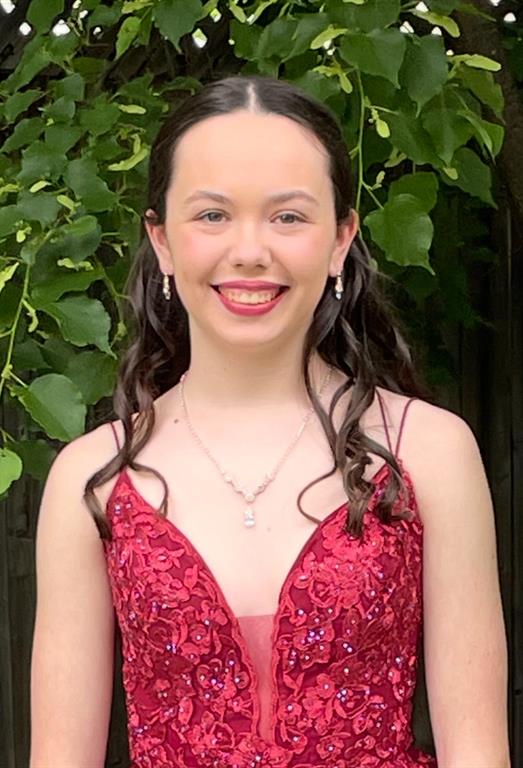 By Patchen Barss
By Patchen Barss
Alaina Leben recently wrapped up her fourteenth season at Ottawa’s Pointe of Grace Dance Company.
“I’m hoping to continue dancing at Carleton University,” the recent graduate of Sacred Heart high School says. “Combining creativity and music has always been my favorite way to express myself. Dance has been there for me in my best and worst moments, and I was so grateful to be able to continue after my scoliosis diagnosis.”
It hasn’t always been easy: hip dysplasia and spinal pain often made movement painful, but the rewards vastly outweighed the drawbacks.
“Dance has always been my passion, and has been the source of so much happiness in my life. It allows me to express myself in the best way, onstage and to music! It doesn’t matter how I come in, after a dance class, I always feel three times better,” she says.
Chronic pain has also made it more challenging for her to work and save money for university. Jobs involving extensive periods of standing or walking can be difficult. She ultimately found work with the City of Ottawa as a dance instructor and camp counselor.
“By the time I found a job with the city last year I was a little late to the saving game!” she says. “This scholarship is going to be a huge help with my tuition fees. It also matters that someone recognized that people with disabilities often need financial help to pursue their education if they are unable to make money themselves.”
With her own savings and the EKO scholarship, she has the resources to embark on an ambitious academic path at Carleton, pursuing a combined honours degree in chemistry and Earth sciences with an eye toward postgraduate work after that.
She is heavily influenced both by her mother’s dedication and devotion, and by her own experiences working with younger children.
“My mother inspires me every day with her incredible support, kindness and unconditional love. She’s an extremely hardworking single mother and I aspire to be as dedicated and strong as she is someday,” Leben says. “She is an Early Childhood Educator and ran a daycare in our home so I’m very used to having kids around and enjoy helping to take care of them. There are always kiddos that need a little more support in camp, and I love that I can help them find a way to be included in the activities. I take pride in the times I’ve become a child’s ‘safe person’ with whom they feel comfortable enough to try new things.”
Part of her empathy stems from the knowledge that every kid’s story is different, and the activities that bring them joy and success are equally unique.
“Being diagnosed with a disability can be a humbling experience,” she says. “I’ve dealt with physical issues in one way or another for all my life, and the biggest thing I’d like to tell people is that disability looks different for everyone. For me, I’m still an active person. Sometimes people wonder how much pain I could really be in if I’m able to still do all those things. The difference is, I’d rather deal with the pain than never dance again. Others aren’t so lucky. They’re forced to stop the activities they love because it’s damaging their quality of life severely. Everyone is different, everyone needs different accommodations, everyone has different pain tolerance and pain levels.”
Her empathy extends to friends and colleagues who might struggle to understand exactly what it means to live with a disability.
“It’s okay to not get it all ‘right,’” she says. “With regard to what a person needs, most of the time, they will tell you. The main idea is that it’s going to be different person to person, so keep that in mind.”
Meet our 2025 EKO Scholars